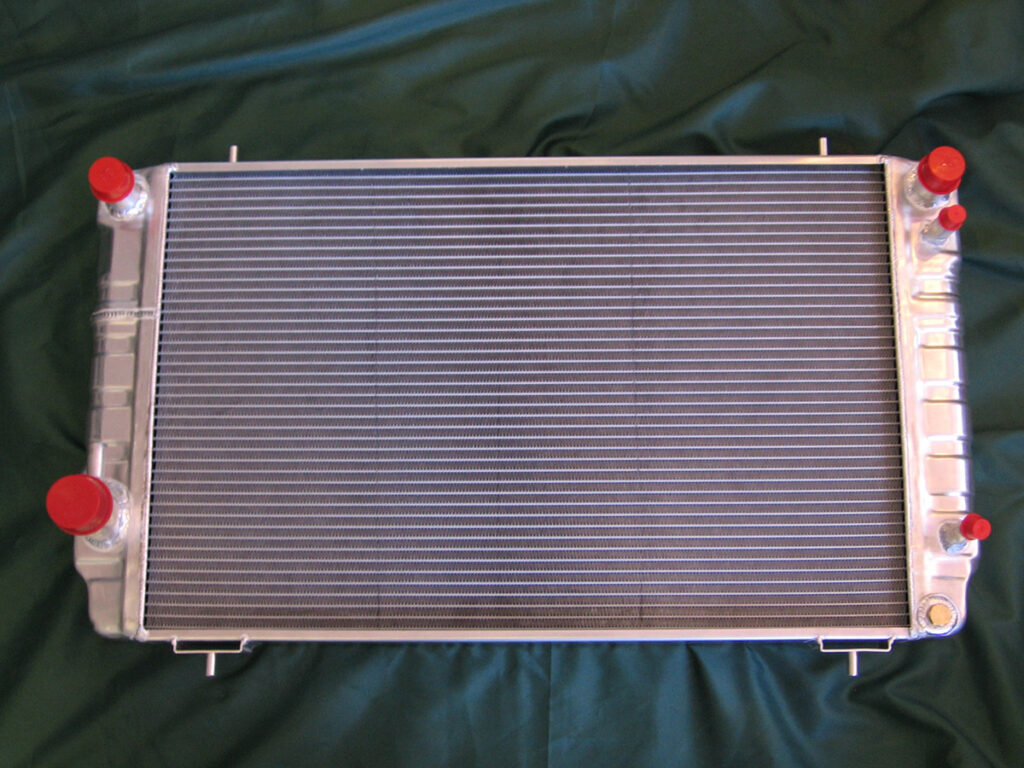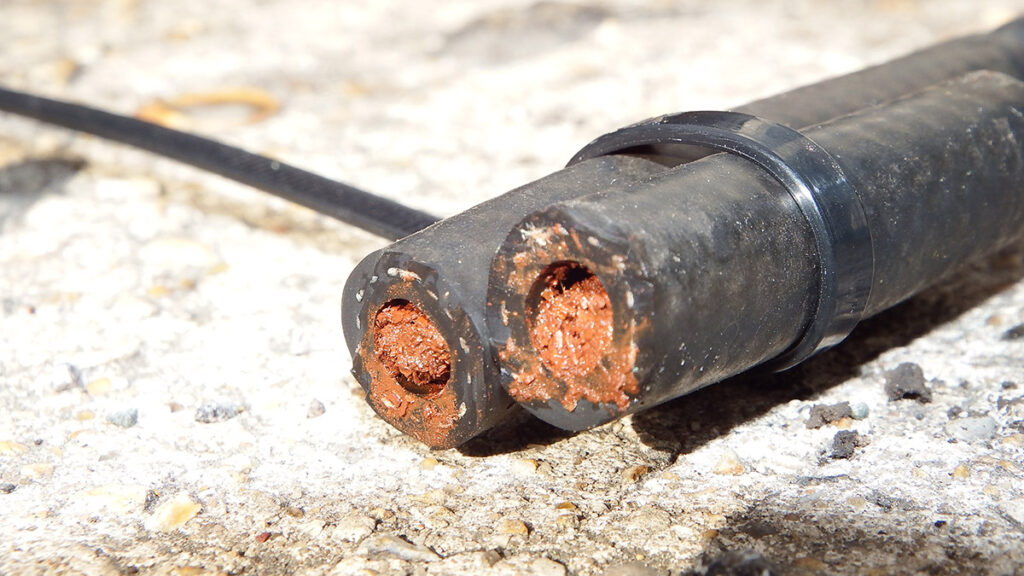Radiators and cooling
- 22nd February 2023
- News
- Posted by Ruth Vant
- Leave your thoughts
As warmer weather approaches now is a good time to bring your cooling system back up to top condition. This is especially true for the V12 engines.

We see more and more engine systems where the coolant has degraded and corrosion has started, along with substantial build up of limescale and sludge.
The V12 radiator is only just large enough – it has little reserve cooling capacity to cope with hot weather driving, and putting in electric fans and/or expensive ‘water-less’ coolants are sticking plasters over the real problem.
Without regular (every 2 – 3 years) flushing and replacing the coolant*, sludge builds up in the radiator, the heater matrix and the small diameter bleed pipes.

This has several effects:
- The radiator loses capacity due to the sludge, and overheating can occur on hot days
- The heater matrix can become clogged, reducing hot air to the cabin
- Coolant system becomes unable to self-bleed leading to air locks and overheating, especially if coolant has been added too late to a leaking system.
- The system can over-pressure and blow off coolant or burst old hoses when the overflow hose to the catch tank gets clogged.
Conventional coolant* (glycol type, usually green or blue) only has a life of around 2 years, before it loses its ability to protect the system. Modern OAT (red) coolant lasts a lot longer, and is recommended for all Jaguar engines post-1970. The majority of cars we see have not had their coolant changed for much longer, and so the systems need to be partly replaced and re-conditioned.
KWE offers a Coolant System Renewal package at around £2100 inc VAT
The hoses too are often well over their expected life, and can and will burst at the most inconvenient time, on a hot motorway in crawling traffic! See also our “Perishables Service” which deals with this and similar problems for around £3500 inc VAT for the V12.
If you are contemplating a long trip, or just want confidence in your cooling system then do please get in touch.
* Coolant. This is actually a blend of ordinary water and coolant additives, often known as ‘anti-freeze’. While the anti-freeze properties are useful, especially in very cold weather, just as important are the anti-corrosion chemicals added, which prevent the cooling system components from going rusty and corroded. It also help prevent sludge and limescale. It is these corrosion-inhibitors which have a finite life, and must be replaced regardless of the car’s use. They are essentially ‘consumed’ while they do their chemical protection work.

